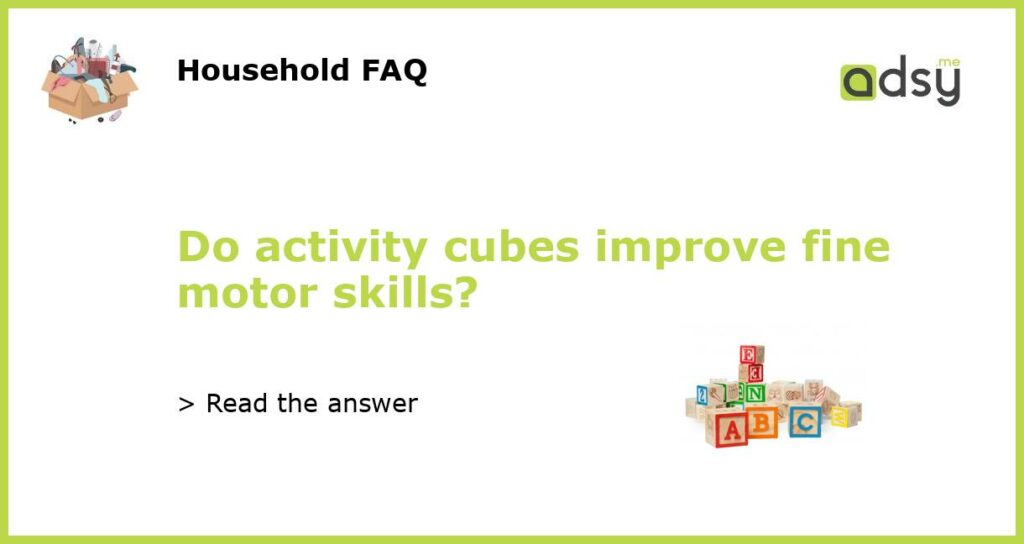What Are Activity Cubes?
An activity cube is a toy that typically features five or six sides, each with different activities meant to stimulate a child’s senses and motor skills. These activities can include spinning gears, moving puzzle pieces, sliding beads, and more. Activity cubes are marketed towards toddlers and young children, and are often considered to be a valuable tool for developing fine motor skills. But the question remains – do activity cubes actually improve a child’s fine motor skills?
What are Fine Motor Skills, and Why Are They Important?
Fine motor skills refer to the small movements made by the fingers, hands, and wrists. These skills are essential for everyday activities such as writing, using utensils, and grasping objects. Developing fine motor skills can also contribute to a child’s overall cognitive development and hand-eye coordination.
The Pros and Cons of Activity Cubes
There are certainly benefits to using an activity cube to promote fine motor skills. By engaging in activities like twisting knobs, pulling levers, and pressing buttons, children can develop hand strength, hand-eye coordination, and finger dexterity. Additionally, activity cubes can be a fun tool for improving focus and concentration.
However, it’s important to note that activity cubes are not the only way to develop fine motor skills. Activities like drawing, stringing beads, and building with blocks can also contribute to the development of these skills. Additionally, some experts have raised concerns that activity cubes can be overstimulating for children, leading to sensory overload and even anxiety.
What the Research Says
The research on the effectiveness of activity cubes for improving fine motor skills is somewhat mixed. Some studies have found that using an activity cube can improve a child’s hand-eye coordination and finger dexterity. For example, one study published in the Journal of Physical Therapy Science found that using an activity cube led to improvements in fine motor control and finger strength in children with Down Syndrome.
Other studies have found that activity cubes may not be significantly better than other forms of play for promoting fine motor skills. For example, a study published in Infant Behavior and Development found that while activity cubes were effective at promoting visual attention, they did not lead to significant improvements in fine motor skills when compared to other types of play.
Do Activity Cubes Improve Fine Motor Skills?
So, do activity cubes really improve fine motor skills? The answer, as with many things in child development, is that it depends. While activity cubes can be a fun tool for promoting hand strength, dexterity, and concentration, they are not the only way to develop these skills. Additionally, some children may find activity cubes to be overstimulating or simply prefer other types of play. Ultimately, parents and caregivers should consider a variety of activities and toys when looking to promote fine motor skills in young children.






